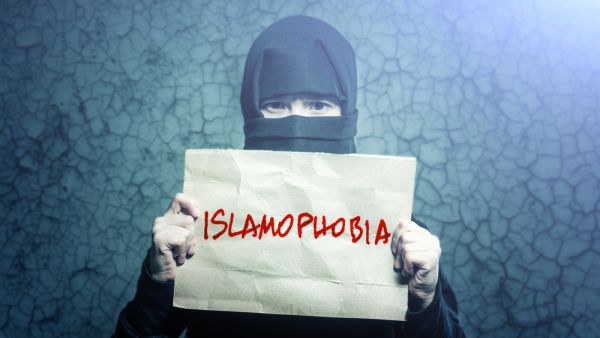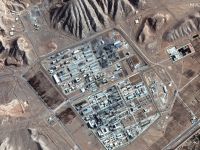The American administration has banned nationals from a series of Muslim-majority countries from entering the US, a decision upheld by the US Supreme Court.
Thousands of children, who were unaccompanied when they crossed the border from Mexico to the US or who were separated from their parents upon entry, have been held in detention centres in the US.
It's not a stretch to imagine that a country which can do that can also set up internment camps, especially when you consider they've existed in the US before. That's the scenario Samira Ahmed explores in her excellent new young adult novel Internment.
In Internment, the "Muslim ban" was followed by a Muslim registry, book burnings and Exclusion Laws which have allowed for discrimination against Muslims. At the start of the novel, a book burning is being held in the community Layla lives in with her dad, a poet and university professor, and her mum, a chiropractor.
A few hours after returning from seeing her boyfriend, David, an ominous knock sounds on the Amin family's door – it is government officials, come to take the family to an internment camp in the Californian desert.
{"preview_thumbnail":"https://cdn.flowplayer.com/6684a05f-6468-4ecd-87d5-a748773282a3/i/v-i-a…","video_id":"ae15188c-79ee-405d-99f9-77a259e99b22","player_id":"8ca46225-42a2-4245-9c20-7850ae937431","provider":"flowplayer","video":"Netanyahu Winner in the Israeli Election"}
There, Layla begins a revolution against the internment camp's director and his guards. Layla's battle against the director is fascinating. He's a perfect villain, one who truly believes that Muslims are a danger to America while also believing that life in the camps is genuinely pleasant and that the internees should be grateful for what they have.
His delusions, combined with the fact that he is always on the edge of losing control and doesn't fear any consequences, makes him even more dangerous and a bigger threat.
The big things in the novel are terrifying – the violence, the government-sanctioned racism – but the little things also really hurt, and make Internment's world so believable. On the night she is forced to leave her home, Layla bumps into a former teacher of hers who refuses to speak to her. The Amin family are driven to the train that will take them to the internment camp by the father of a former schoolmate of Layla's, who wishes the family luck when he leaves them. In these moments, Ahmed demonstrates just how fallible people are, and how quickly they will succumb to prejudice even against people they have known and liked.
But Internment is not just about history, it's a tribute to the young people of today and their refusal to let injustice stand. From the high schoolers in the US who have turned into gun control activists to the pupils who held a day of action over climate change, it is young people across the world who are driving change, and who are giving us hope.
Nationalism and patriotism are extremely close to fascism. We've seen plenty of the former, and the latter is becoming more and more common. It would have been unthinkable that in 2019 we'd be living in a world where Nazis were once again out and proud, but here we are, and it's scary.
The best dystopian fiction taps into our real fears, and offers up a world in which some aspects feel like they could be true. That's what makes Internment so chilling, and so good – Ahmed's world is not a million miles away from our own. But the book is also good because it offers hope; if we stand up to racism and prejudice, if we refuse to let ourselves be silenced, and if we work together, we can defeat the forces of evil.
"The people united will never be defeated," says Layla at one point. It's a rallying cry for the novel's characters, and one we would all do well to remember.
This article has been adapted from its original source.








